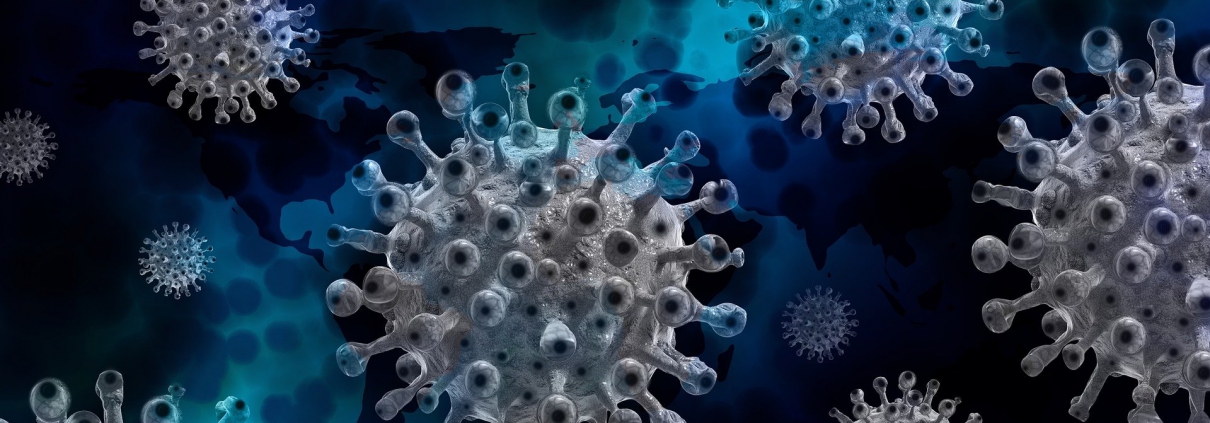The importance of good ventilation and the precautions in place due to Covid
Introduction
This memorandum discusses the precautions in place due to Covid on the properties in the Apollo Healthcare Property Fund, additionally the ventilation systems are being discussed. The Fund’s portfolio consists of nursing complexes, health centers and assisted housing properties in the Netherlands. The measures to protect residents, users and visitors of the objects can be divided into two groups:
- Government measures, including hygiene (“washing hands”), keeping a meter and a half away (“social distancing”) and mandatory masks in public places.
- Building-specific measures, especially with regard to the use of communal (traffic) spaces and (ventilation) installations. In both the first and second wave, government measures have been introduced and tightened to reduce the contamination level. Building specific measures are the responsibility of the owner of the property. For all properties in the portfolio, MVGM (property manager) has carried out an analysis whether the construction (layout of the building and accessibility of the building) and the installations (ventilation systems) are adequate to reduce the risk of contamination.
Analysis
The risk in the properties is assessed on the guidelines of the RIVM (National Institute for Health and Environment) and REHVA (Federation of European Heating, Ventilation and Air Conditioning Association) studies. The RIVM has indicated to limit contact in communal areas. During the first Covid-19 wave, the REHVA conducted an investigation into the extent to which different ventilation systems can contribute to the transmission of the virus. It has been established that if the systems are regularly maintained, the chance is negligible that the virus can spread through ventilation systems. This is not the case when using a direct air source (such as mobile air conditioners and fans) or have a recirculation system without filtering. The latter is not applied in our properties. Overview of the properties in the portfolio:
Based on the following points, the risk of contamination in the communal areas is limited:
- The ventilation systems in the buildings extract air from within and blow in fresh air. There is no recirculation within the building. In addition, the amount of fresh air can be increased. In our properties, the degree of ventilation is higher than stipulated in the building regulations.
- Maintenance contracts are in effect on all our ventilation systems, which have been carried out by MVGM or the tenant and which are checked annually by MVGM for implementation. The last time these were checked was in August / September 2020. Filters, among other things, are replaced during the checks.
- We have temporarily closed the communal area at the complexes in the “Assisted living” segment.
- Disinfection fluid is available for residents and visitors in all complexes (provided by MVGM in the “Assisted living” segment and by the tenants in the other segments). At the properties Geerdinksweg, Louis Pasteurstraat and Boerhaavelaan, the installations are set slightly higher to increase the flow of fresh air. At the Wendakker complex, an investigation is being conducted into increasing the refreshment rate and whether this has adverse effects on the residents and their living environment. At the complexes Marconistraat, Zweringweg, De La Reyweg and Maanstraat, there has been direct contact with tenants to provide information about this possibility.
In the media it has been discussed to leave lift doors open longer, when there are no or insufficient ventilation options available. There are a number of issues that make ventilation in elevators more difficult:
- The elevator doors are part of a fire compartment;
- The manufacturing standard prescribes it.
Doors may remain open, provided they do not interfere with fire safety. If a lift is part of the fire compartmentation, the doors must close at all times in rest position. As soon as it is possible to leave the doors open after the last stop, because they do not belong to the above, the lift doors must be open for at least 20 minutes to prevent spreading. The effectiveness in this is reduced as soon as the lift is taken into use by a new visitor because the doors close again and the required time is not achieved. Manufacturing standards EN 81-1, 1986 and EN 81-1, 1998 require automatic doors to close. How long a door may remain open is not specified in the standard. In a nursing home, the door is usually open a little longer to give people who have difficulty walking the opportunity to board in a responsible manner. There is usually a “close door” button in the elevator for the nursing staff to close the doors earlier, if possible. As a result, their work is delayed minimally.
At the property Mw. Van Wieringenplein, which has a high frequency of use of the elevators, a higher frequency of cleaning on the inside of the lift has therefore been chosen, as this is more effective compared to increasing the opening time of the lift doors. At the Louis Pasteurstraat complex, the vacant space is made available for the GPs to provide the Covid-19 consultation hours via a separate entrance to the complex.
We are expecting that this memorandum has given you a good idea of what we as a manager are doing to prevent the spread of COVID in our properties.



